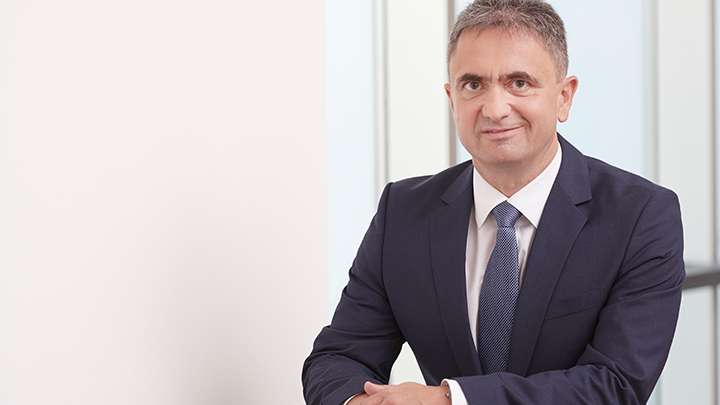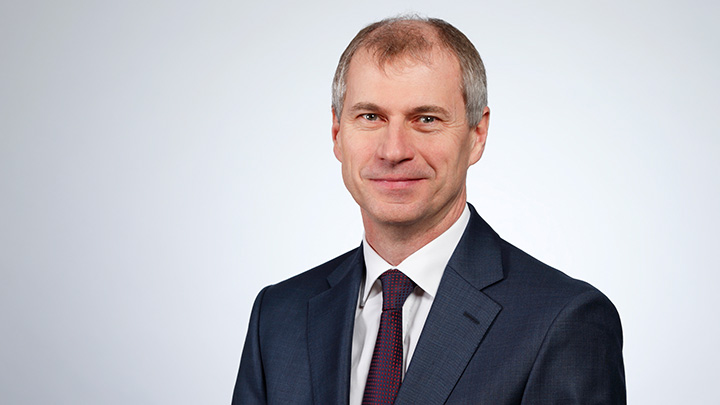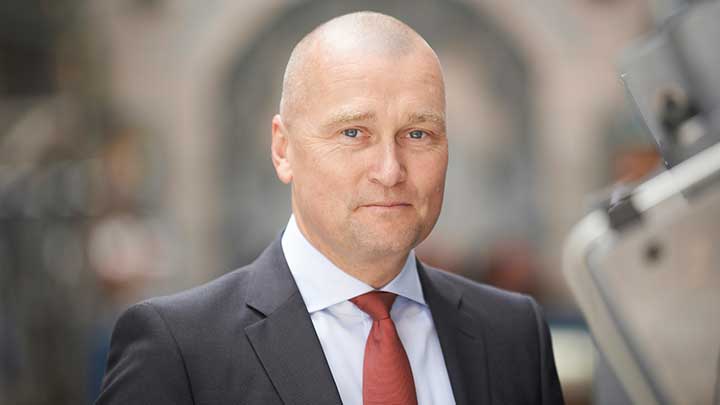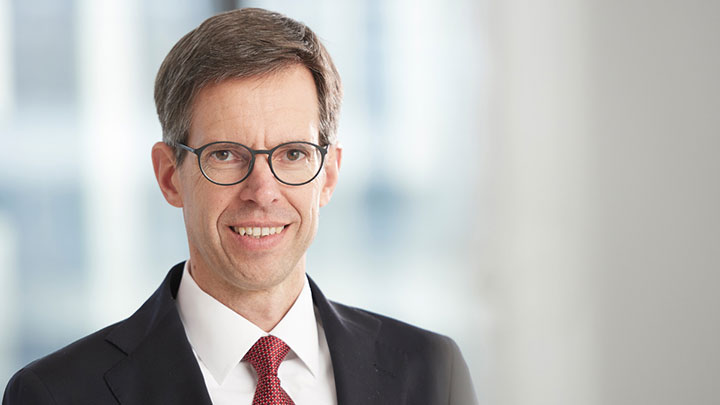Executive Board of MAN Energy Solutions

Dr Uwe Lauber - Chief Executive Officer, Chief Sales Officer
Dr Uwe Lauber was born in Bad Säckingen in Germany in 1967. After graduating from high school he studied Mechanical Engineering at the University of Applied Sciences of Technology, Economics and Design (HTWG) in Konstanz and obtained a master's degree. In 2000, he studied business engineering at the business school in St. Gallen. In addition to that, in 2009, he received a PhD in mechanical engineering from the University of Kronstadt.

Jürgen Klöpffer -
Chief Financial Officer
Jürgen Klöpffer was born in Passau, Germany, in 1964. After graduating from high school, he studied business administration at the University of Passau, graduating with a master’s degree.
In 1990, he started his professional career at Siemens AG, where he held various positions in purchasing and logistics in Regensburg, and later in Mexico.

Martin Oetjen -
Chief Operating Officer
Martin Oetjen was born in Buchholz in the Nordheide in 1968. In 1988 he began studying mechanical engineering at the TU Braunschweig, graduating in 1995 with a degree in engineering.
Since 1 August 2020 Martin Oetjen has been a member of the Executive Board of MAN Energy Solutions SE and is responsible for the company's entire supply chain.

Ingrid Rieken - Chief Human Resources Officer
Ingrid Rieken has joined the MAN Energy Solutions Executive Board as Chief Human Resources Officer on January 1, 2024. Born in Aurich in 1974 she looks back on a successful 30-year career in the Volkswagen Group, during which she held several senior management positions in Human Resources and Logistics at the Volkswagen plants in Emden, Hanover and Poznan in Poland.

Dr Gunnar Stiesch -
Chief Technology Officer
Dr Gunnar Stiesch was born in Hanover in 1970. He has been Chief Technology Officer at MAN Energy Solutions SE since 1 January 2023, with responsibility for research and development.
Latest news from MAN Energy Solutions
Study Shows Competitive Green-Hydrogen Production Possible in Northern Germany
MAN Energy Solutions and the Fraunhofer Institute for Surface Engineering and Thin Films (IST) have published their analysis of the framework conditions for the future supply of green hydrogen to the Salzgitter steel site near Hannover. Commissioned by Hydrogen Campus Salzgitter, the study investigates, among other questions, the role locally produced green hydrogen could play to support German supply and its potential competitiveness with imports.
The study’s calculations show that – if used directly without further conversion – local hydrogen can be economical and even cheaper than imports from 2030 onwards. While production costs of around 4.00 euros per kilogram are possible in northern Germany, hydrogen imported from Tunisia, for example, would cost at least 4.70 euros to produce – profit margins in both cases not included.
Marc Grünewald, Head of Business Development, Power and New Energies at MAN Energy Solutions, said: "In the case of direct use, local hydrogen has an economic advantage due to the elimination of transport and conversion costs. As such, green hydrogen can be produced in northern Germany at competitive prices and form the basis for a German hydrogen initiative – this is good news for German industry."
For the study, the authors modelled different supply chains for green hydrogen and compared possible import routes, such as those from Portugal, Canada, Tunisia and Australia. Although green hydrogen can be produced much more cheaply in countries with significant amounts of sunshine, it must then be converted for transport to Germany and subsequently back again for domestic use. This process step, which is fraught with costs and losses, drives the total expense above the cost price of H2 produced from wind energy in northern Germany, which can be transported by pipeline to its destination for immediate use.
Grünewald added: "Of course, we will still need imported hydrogen, and in large quantities, for two reasons. Firstly, due to the limited wind-energy potential in Germany, we can only cover a fraction of the prospective demand from domestic sources. Secondly, the local cost-advantage disappears the moment the hydrogen is not for direct use but rather as a raw material for synthetic fuels such as ammonia, methanol or methane. This will be the case in many instances, as for example in the shipbuilding or aviation industries. Accordingly, in addition to domestic production, we also need strong, international partners and import routes from the sunny or windy regions of North Africa, Patagonia, Scotland and Canada."
Due to its low energy-density and high volatility, pure hydrogen cannot yet be transported economically over longer distances, while ports possess neither tanker fleets nor appropriate infrastructure. Experts therefore assume that international transport will initially scale up via conversion to more conveniently transportable media, such as methanol, ammonia, etc.
Due to low technological maturity and lack of infrastructure, the study by MAN Energy Solutions and IST did not consider liquefied hydrogen or so-called LOHCs (Liquid Organic Hydrogen Carriers) in its analysis.
"These technologies may play a role after 2030 but it’s too early to tell," Grünewald said. Converting hydrogen into ammonia, methane or methanol, however, would quickly entertain large-scale import scenarios. "The world needs a massive amount of industrially-scaled, green hydrogen production. This study shows that Germany can also play an important part in building this supply."
Study only available in German Language. Please find the link here: Hydrogen Study
Documents
-
MAN ES_PM_Studie_Salzgitter_EN
Contact
Jan Hoppe
Head of Group Communication & Marketing
Group Communications & MarketingMAN Energy Solutions SEStadtbachstr. 186153 AugsburgGermany
Jan.Hoppe@man-es.com t +49 821 322 3126Available languages
- DE ·
- EN
